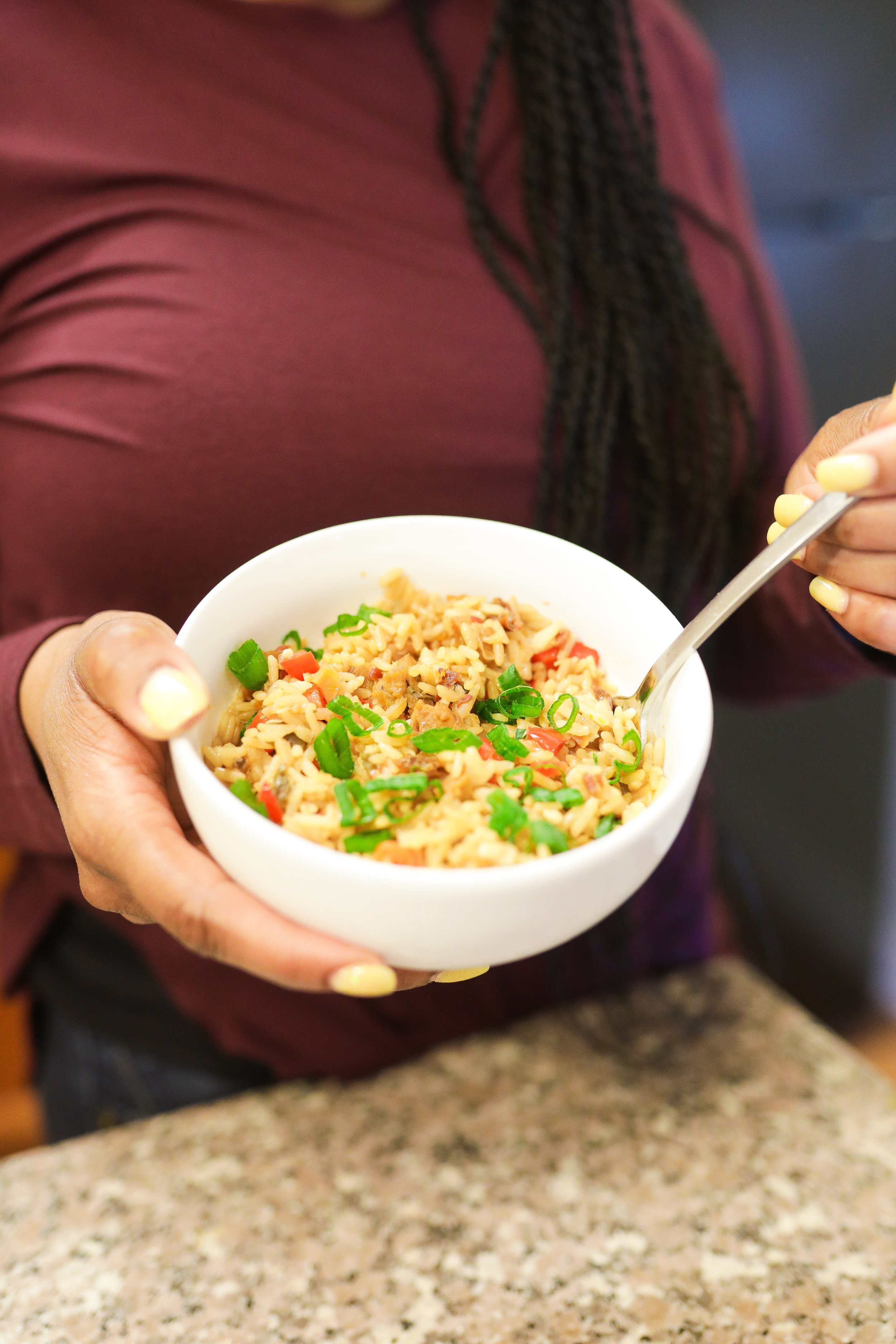I don’t believe in all or nothing, but I do think there’s room for all of us to eat more fruit & vegetables.
Here are a few tips to get started…
Add an extra vegetable and/or fruit to your plate --
this is a great way to start crowding out some of the meat, dairy & eggs.
Experiment with some of the meat alternatives to replace beef, chicken, and eggs.
Y'all some of these brands are sooo good and will have you questioning whether or not it's meat. 😂
On the flip side, some of these replacements are TERRIBLE, but you have to be open to at least trying.
One of the easiest replacements you can make is dairy milk.
Use coconut, almond, soy, oat, etc. for cooking and cereal. There are sooo many options out there.
Start paying attention to ingredient lists
Look for the “V” symbol or use an app like Vegan Pocket to scan the UPC to see if items are vegan.
If you’re not much of a cook (I wasn’t before being vegan🤷🏾♂️) start making simple dishes
like chickpea tuna salad, oatmeal, or rice mixes from @neillys.foods (my middle son hates cooking but loves their products).
Progress over perfection….always.










